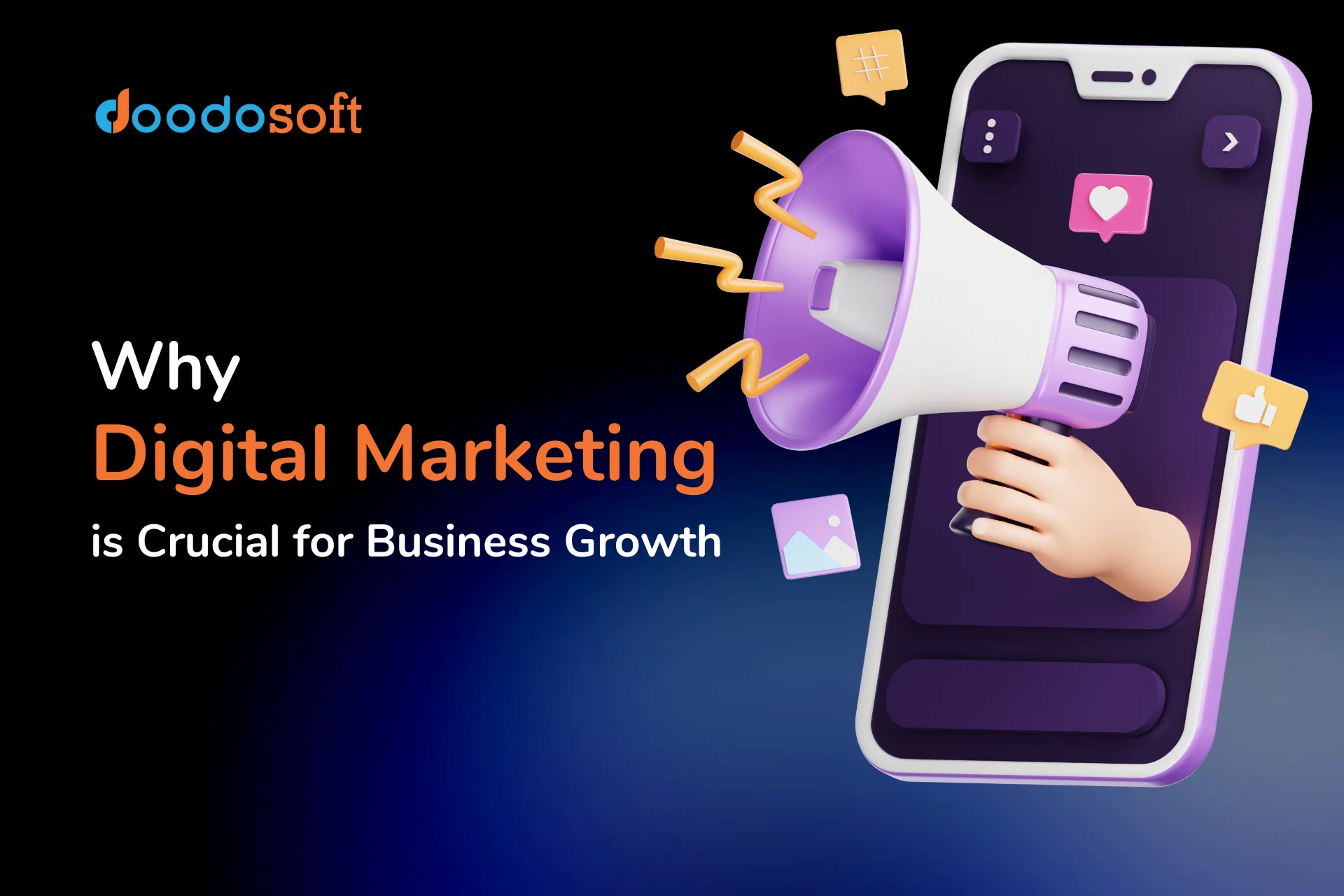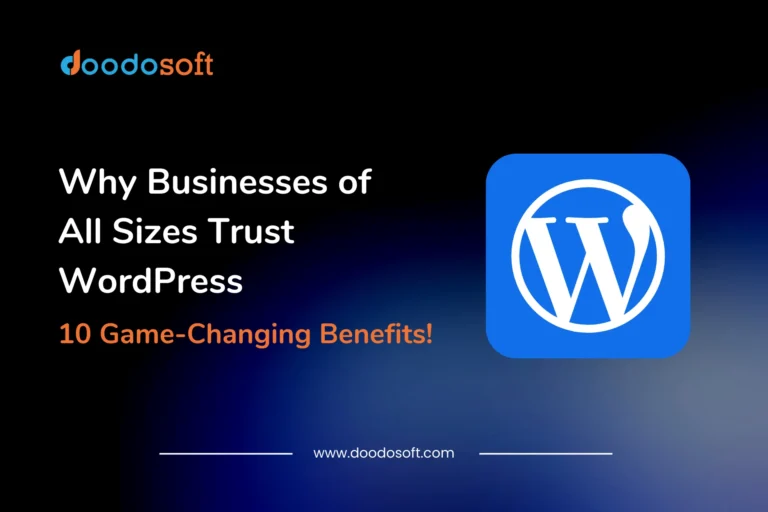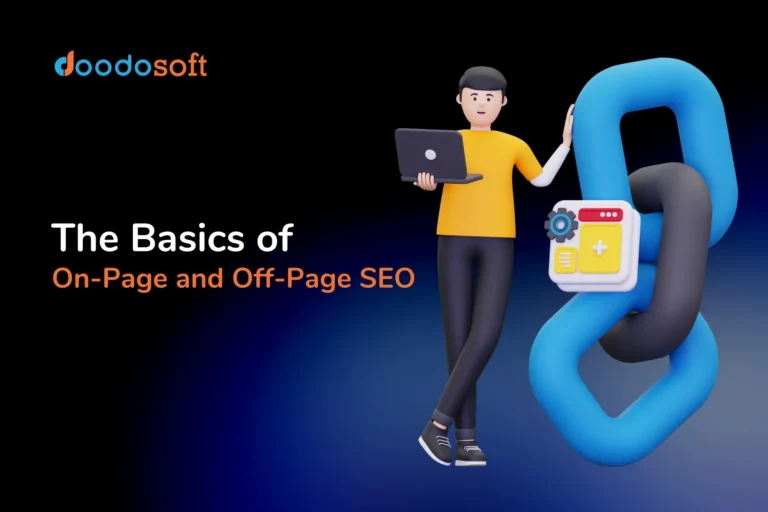Why Digital Marketing is Crucial for Business Growth

In the past, businesses relied on traditional marketing methods like print ads and TV commercials. Today, digital marketing is essential for growth, as more consumers are online. It enables businesses to directly connect with their audience, engage effectively, and stay competitive in a digital world.
Table of Contents
Changing Consumer Habits: The Shift to Online
Not long ago, when people had free time, they would watch TV, read newspapers, or engage in physical activities. But now, smartphones, laptops, and tablets have become an integral part of everyday life. According to recent data, over 4.7 billion people worldwide are connected to the internet, and 93% of online experiences begin with a search engine. People now prefer researching products, services, and even checking reviews before making any purchasing decisions. Digital marketing ensures that businesses are visible and easily accessible at these crucial moments.
The Power of Digital Presence
Before, people would visit a store or rely on physical advertising for information. Today, however, consumers turn to their mobile phones to check reviews, compare products, and even make purchases from the comfort of their homes. This shift in behavior has drastically impacted how businesses market themselves. With digital marketing, businesses can ensure they are present at the right time and place—when a potential customer is actively searching.
Increased Brand Visibility and Reach
Gone are the days when businesses could only advertise locally through traditional methods. Digital marketing allows businesses to reach a global audience with a click of a button. Whether through search engine optimization (SEO), social media marketing, or pay-per-click (PPC) ads, businesses can target specific demographics and geographic locations, increasing visibility and attracting a wider audience.
Today, over 50% of web traffic comes from mobile devices, meaning that your audience is always on the move, accessing information instantly. Digital marketing allows you to leverage this by creating content that’s optimized for mobile, ensuring customers can find you anytime, anywhere.
Real-Time Analytics and Data
One of the most significant advantages of digital marketing over traditional methods is the ability to track and measure campaign performance in real-time. With tools like Google Analytics, social media insights, and email marketing metrics, businesses can analyze how customers are interacting with their content, what drives conversions, and where improvements are needed.
The shift from traditional to digital marketing also allows businesses to adapt faster. For example, earlier, businesses would only receive feedback after a campaign ended. Now, real-time data provides instant feedback, allowing businesses to tweak their strategies and optimize campaigns on the fly.
Cost-Effective Marketing
Unlike traditional marketing methods, digital marketing offers a cost-effective solution that helps businesses of all sizes compete. With SEO and social media, businesses can drive traffic to their website and reach potential customers without spending significant amounts on TV ads, billboards, or direct mail.
A report by Statista reveals that businesses investing in social media marketing have seen a 58% increase in customer engagement and brand awareness. This demonstrates that digital marketing strategies can bring long-term, cost-effective results.
Consumer Decision-Making and Convenience
More consumers now prefer shopping or consulting services online. Whether it’s buying clothes, ordering food, or consulting a healthcare professional, people value the convenience of doing everything online. A survey shows that 81% of shoppers conduct online research before making a purchase, and 47% of them make their final purchase online. This behavior highlights the importance of having a robust digital presence.
Digital marketing gives businesses the opportunity to reach customers at this critical stage, where the decision-making process is taking place.
Social Media Influence
Previously, people relied on word-of-mouth or store visits to learn about new products or services. Today, social media platforms have replaced this. Platforms like Instagram, Facebook, Twitter, and LinkedIn play a massive role in influencing consumer decisions. Businesses that leverage social media marketing can engage with potential customers, build brand loyalty, and encourage repeat business.
Studies show that 54% of social browsers use social media to research products. This makes social media marketing an integral part of any digital marketing strategy.
Adaptability and Flexibility
Traditional marketing methods were static and could not adapt quickly to changing trends. Digital marketing, on the other hand, is highly adaptable. With evolving technologies, businesses can constantly refine their strategies to suit the latest trends and customer demands. For example, businesses now use AI-powered tools for chatbots and personalized recommendations, which offer real-time customer support and tailor product suggestions based on user behavior.
Conclusion
Digital marketing is no longer a luxury but a necessity for business growth. In the past, businesses relied on physical presence and traditional marketing tactics to reach customers. Today, customers expect businesses to be available online, where they can easily find information, interact with brands, and make purchases. By embracing digital marketing, businesses can ensure they stay relevant, competitive, and most importantly, visible in today’s online-driven world.
To thrive and grow, businesses must continuously adapt to the digital landscape. Digital marketing not only helps businesses reach more people, but it also drives engagement, improves customer experience, and contributes significantly to long-term success.



